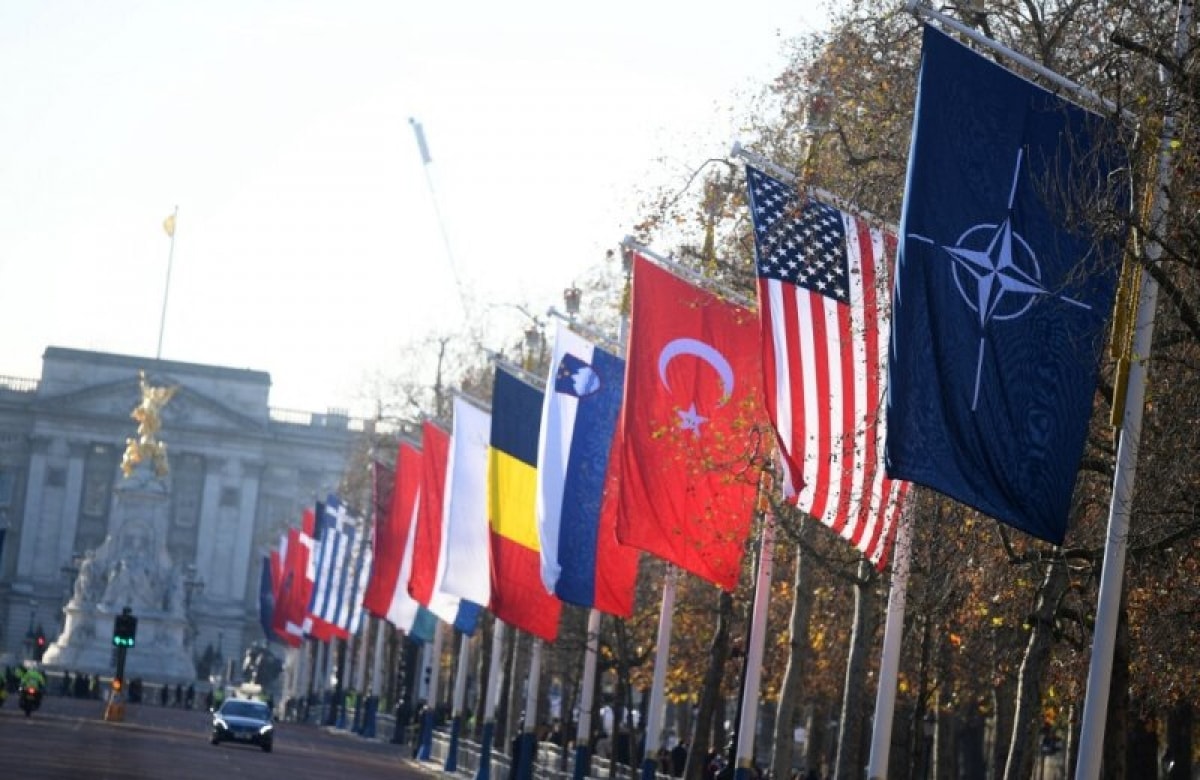Russia-NATO tensions 'complicate' Biden's efforts to deal with China
The Russia-NATO diplomatic tensions come as President Biden seeks to stabilize relations with Moscow and Europe fears this will lead to concessions to the Kremlin - which they see as an urgent threat.
Further complicating the Biden administration's efforts to deal with China
Russia has recalled its diplomats to NATO headquarters in Brussels in response to the alliance's expulsion of eight Russian diplomats earlier in October, whom NATO said were intelligence officers.
 |
| Illustration photo: Reuters |
The Russian Foreign Ministry called the move on October 18 a response to “unfriendly actions.” It also said it would suspend the activities of the NATO military liaison mission in Moscow. The latest development is a blow to relations between Russia and the West that have deteriorated in recent years following Moscow’s annexation of Crimea in 2014 and Washington’s accusations of election meddling, the SolarWinds cyberattack, ransomware attacks and allegations involving opposition leader Alexei Navalny.
Moscow's decision to close its diplomatic mission to NATO also escalates tensions with the alliance and complicates the Biden administration's efforts to address worsening relations with Russia while focusing on countering China.
For the first time since World War II, the United States faces two fronts. Washington is the strongest member of the long-standing transatlantic alliance to contain and deter Russia, and of the coalition of nations to prevent China from dominating the Pacific. What happens on one front affects the other, because American power is at the heart of both alliances. Europe’s stance on Pacific issues will also feed back into transatlantic concerns.
This new reality has shaped the difficulties facing the transatlantic alliance today. The United States and Europe cannot stand together unless they share a common view of the threat they face. In fact, in many respects, they do not.
Despite strong opposition from the US, Germany is still determined to complete Nord Stream 2. France also stands with Germany in promoting a more moderate stance towards Russia than the US and Central and Eastern European countries.
Disagreements with the United States over Pacific policy are also deepening. In a speech to the World Economic Forum in January, German Chancellor Angela Merkel refused to take a tough stance on China. Speaking at the Atlantic Council a month later, French President Emmanuel Macron also suggested that calls for European unity against China could be “counterproductive.” French Finance Minister Bruno Le Maire recently said: “The United States wants to confront China. The EU wants to cooperate with China.”
President Biden has sought to stabilize relations with Russia, including meeting with Russian President Vladimir Putin in June. However, some European allies are concerned that President Biden’s focus on dealing with China could lead to concessions to Russia, which they see as an urgent threat.
The Biden administration reached a deal with Germany in July to allow completion of the controversial Nord Stream 2 gas pipeline, which European leaders see as a way for Russia to increase its influence in the region.
Recently, as gas prices in Europe rose amid fuel shortages, President Putin said Russia could help if Europe pushed for regulatory approval to start using the pipeline.
The end of NATO relations or symbolic move?
Russia’s decision to close its diplomatic mission to NATO has been criticized by European countries, including Germany. This is a notable development because Berlin has recently expressed dissatisfaction with some allies when these countries believe that Germany prioritizes dialogue with Russia over defense.
German Foreign Minister Heiko Maas said Russia no longer seemed ready for dialogue with the West.
"The decision made by Moscow is more than regrettable because it seriously damages this relationship," the German Foreign Minister told reporters.
Diplomatic tensions between NATO and the Kremlin have brought relations to their lowest point in recent years. Practical cooperation between NATO and Russia ended in 2014 after Moscow annexed Crimea, so "there's not really much talk between the two sides and certainly not working-level exchanges," Jamie Shea, who served as NATO's deputy assistant secretary general for emerging security challenges in 2019, told DW.
However, observer Shea said that Russia's recent move "has more symbolic meaning than reality", because the Kremlin only temporarily closed the diplomatic office but did not completely eliminate it.
Shea said the two sides also did not mention the severance of the "hotline" between NATO's top military commander, General Tod Wolters, and the Chief of the General Staff of the Russian Armed Forces, General Valery Gerasimov. NATO last recorded a conversation between the two officials in April 2020, with a face-to-face meeting two months earlier.
Observer Shea also assessed that there is no reason to "overreact" to the recent announcement.
"This does not mean that Russian officials will never meet with any NATO officials. That is clearly not true. Russia will continue to maintain an embassy in Belgium with a military attaché, so if NATO and Russia want to talk, this dialogue channel will remain there."
Shea said NATO allies also have military attaches in Moscow to conduct talks, so "Russia's decision is by no means a freeze of diplomatic relations with NATO countries"./.
